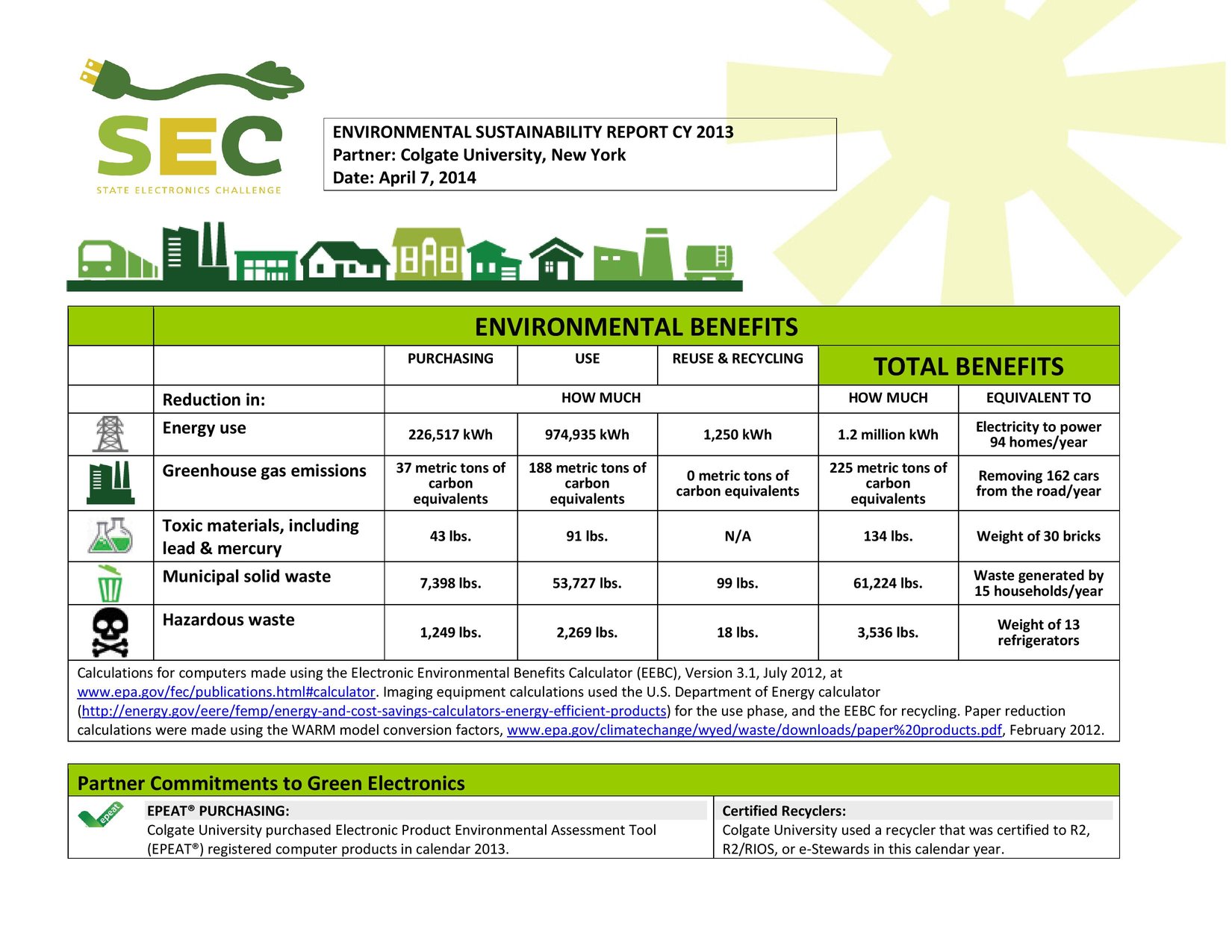By Jack Eiel ’15
Last September, Colgate joined an initiative called the State Electronics Challenge (SEC). This organization specializes in assisting organizations with tracking and quantifying the recycling achievements of their eWaste (electronic waste) programs.
Colgate became a partner of SEC to help supplement its recently established eWaste recycling program. The SEC provides semi-annual reports that document and quantify the environmental impact of Colgate’s eWaste program.
There are three components to the SEC: purchasing, operations, and end-of-life protocol. Each component deals with a fundamental step in minimizing Colgate’s electronic and energy waste.
Purchasing focuses primarily on which types of computer, monitors, and multifunction devices Colgate is buying for faculty, staff, and student use. SEC uses the EPEAT rating system to judge the energy efficiency of electronics. EPEAT (Energy Product Environmental Assessment Tool) awards electronic devices a medal (bronze, silver, or gold) that corresponds to the level of energy efficiency during manufacturing as well as operational use.
End-of-life protocol deals with the final step in the lifecycle of electronic equipment. When these units stop working how does Colgate dispose of them? Typically, Environmental Health and Safety (EHS) is responsible for recycling such big ticket items (i.e. TVs, desktop computers, LCD monitors). These electronics are brought to the Regional Computer Recycling and Recovery (RCR&R), where they are disposed of according to R2RIOS standards.
After collecting data for the fall 2013 semester, we submitted our numbers to the SEC. Just last week we received Colgate’s first personalized electronics report card. Needless to say, the results were great!
In 2013, Colgate bought 99% EPEAT GOLD certified electronic devices. This alone kept over 7,000 lbs. of municipal waste out of the landfill.
Additionally, Colgate enables ENERGYSTAR POWER SAVER on 100% of its operational devices. This practice alone saved almost one million kilowatt-hours of energy. That’s enough to power 75 homes for a year!
These numbers are very encouraging, but there’s always more you can do. The easiest thing to do is make sure to properly recycle your eWaste—there are eWaste stations located all over campus for small electronic devices. For larger electronic equipment, call EHS and they will let you know the proper way to dispose of it.
Click the report card below to view full size:



Wow, very informative! Colgate and its Sustainability Office are really setting a great example for others. Keep up the good work.